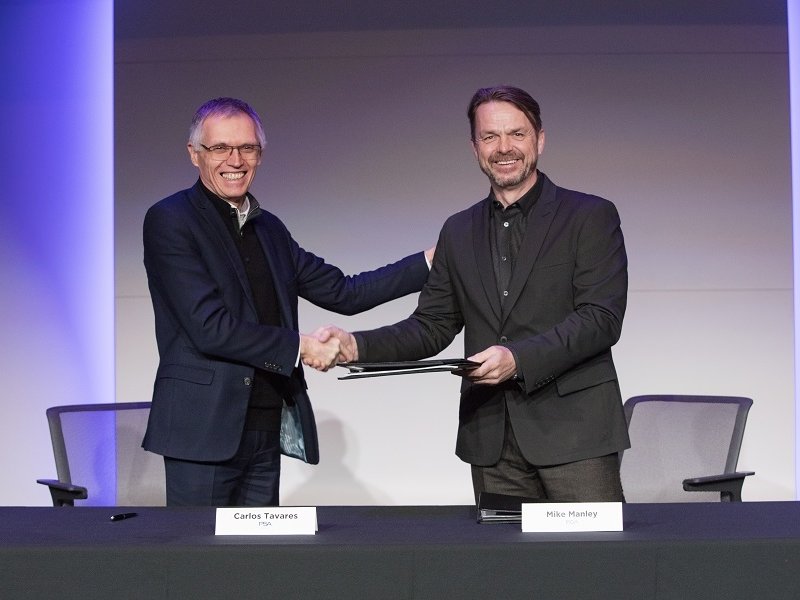
If the merger between PSA Group and Fiat Chrysler Automobiles to create the world’s fourth-largest automaker had a certain logic when it was announced last Oct. 31, the case for a tie-up is even stronger now, with the auto industry on the verge of recession from the coronavirus pandemic.
The idea is that increased economies of scale would reduce unit costs and better amortize huge investments in future technologies, ensuring profits for the merged entity in years to come. Now, such synergies are becoming a basic tool to survive a shock that many experts say will be deeper, if not longer, than the 2008-09 financial crisis.
One positive effect of the coronavirus crisis, if there is one, is that some future FCA products are being put on hold or delayed. This will not only preserve cash in the short term, but also offer the possibility after the merger of more quickly aligning two product cycles that were locked into a set cadence. The virus is zeroing the clock the same way for any automaker.
So the deal still makes good sense.
But this is the wrong time to revise the financial terms of the merger, which call for a special dividend of 5.5 billion euros ($5.9 billion) to FCA shareholders, the divestment of PSA’s controlling stake in supplier Faurecia, and 1.1 billion-euro dividends for shareholders in the 2019 fiscal year.
With stock markets on a roller coaster and car sales in free fall over the world, any forward-looking statement could become obsolete in just few weeks. Each company has lost half of its market capitalization since the merger was announced. If Europe regains traction before the U.S. does, PSA could benefit. If the opposite happens, FCA could be stronger.
Yet there is no urgency for such a discussion. The terms of the memorandum of understanding announced in December call for the deal to close by June 30, 2021, extendable to Sept. 30, 2021. At the time PSA and FCA said they expected that would take place in 12 to 15 months, so between December 2020 and spring 2021.
That breathing room will be helpful, as the two companies will need to make some tough financial decisions in coming weeks. The first is whether to freeze or cancel the 1.1 billion-euro dividend. Cash is king in a crisis, and at least freezing these payouts could be a wise move.
FCA was among the first major automakers to cut the salaries of its top executives, and its board members won’t get any compensation for their duties for the remainder of the year, a strong message needed when white- and blue-collar workers are facing reduced salaries because of plant shutdowns and shortened office hours.
Daimler has also cut executive compensation, and other European companies are likely to follow FCA’s example.
At PSA and FCA headquarters – as well as at their executives’ home offices – perhaps the only certainty right now is the need to reassess their individual businesses to weather this totally unexpected perfect storm.